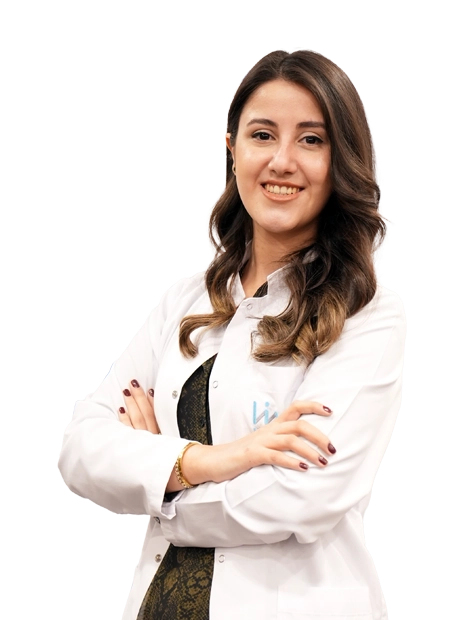Pregnancy Period: Foods That Should Be Consumed
Many expectant mothers strive to eat well throughout their pregnancy to take better care of themselves and their babies. They seek answers to questions like 'What should I eat?', 'What should I avoid?', 'How can I benefit my baby more?' As always, it is important to adhere to balanced and healthy eating principles during pregnancy.

What Should I Eat? What Should I Avoid? How Can I Benefit My Baby More?
Eggs: Eggs are a quality source of protein that both the mother and the baby need, and almost all of the protein in eggs is readily usable by the body. They also contain over 12 vitamins and minerals. Rich in choline mineral and folate, important for the baby's brain development, these elements help prevent neural tube defects. They also contain omega-3 fatty acids, important for brain and eye health. However, eggs should not be consumed undercooked or raw.
Whole grain bread and bulgur: Consuming whole grains during pregnancy is important for digestive and nervous system health. Being a good source of B vitamins, vitamin E, and selenium, they play a significant role in adequate vitamin-mineral intake and stress management. Additionally, their high fiber content is necessary for proper digestion and blood sugar regulation.
Raw Nuts (Walnuts, almonds, peanuts): Recommended during pregnancy due to their plant-based Omega-3, selenium, and zinc content, beneficial for the baby's brain development. DHA (docosahexaenoic acid) found in omega-3 is an important fatty acid that promotes nervous system development. Adequate intake of DHA during pregnancy is a good source for concentration, intelligence, and strong memory in children, and the nuts consumed are also important sources of fiber and healthy fats.
Yogurt: Babies require calcium for the development of their skeletal system, which they obtain from their mothers. If a pregnant woman does not get enough calcium, the calcium reserves in her bones transfer to the baby, resulting in calcium deficiency in the mother, leading to weakened bones and tooth decay. Therefore, it is essential for expectant mothers to get enough calcium, and yogurt can provide a significant portion of this requirement. Reduced-fat yogurt has been noted in many studies to contain more calcium. Additionally, yogurt, rich in protein, is a necessary good source of probiotics for intestinal flora.
Dark green leafy vegetables: Essential for pregnant women due to their vitamin A, C, and K content, and high folate content. These vegetables, good sources of folate, essential for the central nervous system development of the baby, also support the mother's adequate intake of fiber and iron.
Lean red meat: The body's iron requirement doubles during pregnancy. Iron found in red meat is easily digested and absorbed in the body, reducing fatigue and preventing iron deficiency. Consuming the lean portion of red meat is important for expectant mothers during this period. The most important rule in consuming quality protein and iron source meat is to boil or grill it instead of frying it.
Legumes: Including legumes, which contain significant amounts of fiber and protein, in the diet of pregnant women 2-3 times a week will be beneficial. During pregnancy, the digestive system can slow down due to hormones and lack of physical activity. Therefore, eating these foods reduces the risk of problems such as constipation and hemorrhoids and can be included in your meals, soups, and salads.
Salmon: The richest source of Omega-3, important for the eye and brain health of the baby. The DHA (docosahexaenoic acid) in omega-3 fatty acids, which have no side effects for pregnant women and their babies, undoubtedly also significantly affects the learning ability of babies. Since 50 - 60% of the human brain is composed of DHA, it is also important for the brain development of the baby in the womb for the mother to consume fish with high DHA content. Due to containing less heavy metals than other fish species, expectant mothers can safely consume it once a week.
Dried fruits: Dried fruits primarily protect the body against free radicals with high antioxidant potentials. Especially dried pears are recommended for relieving nausea during pregnancy. They are also good food groups for preventing cramps due to magnesium deficiency during pregnancy and against constipation problems.
Water: With fertilization, the mother's water and nutrient requirements increase to create an environment that will support the baby's development and cell proliferation and shaping. By the 26th week of pregnancy, approximately 90% of the baby's body weight consists of water. This shows how important water is for the baby's development. According to research data, the water the mother drinks affects the amniotic fluid. Scientific studies have shown that when the mother is dehydrated, the baby also becomes dehydrated. Inadequacy of this fluid, in which the baby sustains life, negatively affects lung development, reduces mobility, and leads to structural abnormalities. Therefore, the consumption of 2-2.5 liters of water per day by pregnant women is of great importance.
* Contents of this page is for informational purposes only. Please consult your doctor for diagnosis and treatment. The content of this page does not include information on medicinal health care at Liv Hospital








